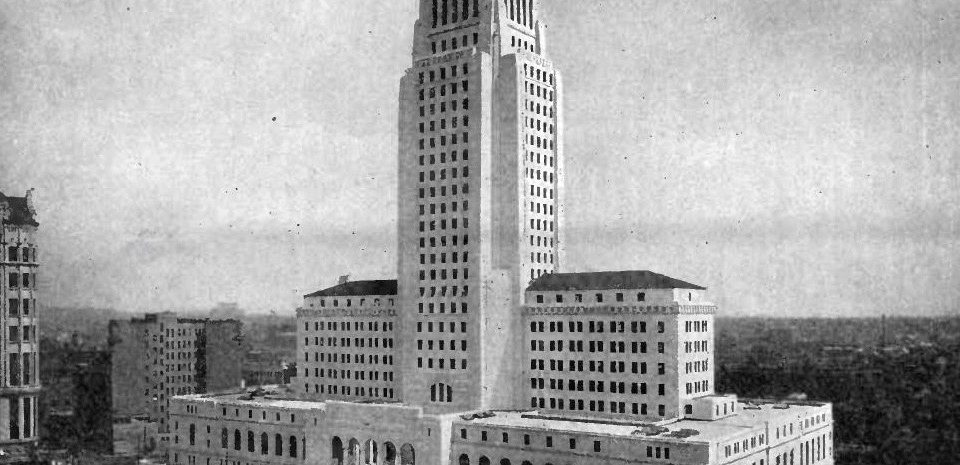
By CDH Guest Author on March 14, 2016
Historical research often draws upon our detective curiosities, tracing archival clues and analyzing (meta)data to make sense of culture and context. In my own PhD work, Playing Detective: Reenactment, Procedure, and Crime-Solving Entertainment, I rely on primary artifacts to unearth the historical perceptions of forensic science and police work as mainstays of popular entertainment and tools for civil involvement in America. These original sources—including mid-century radio procedurals, fingerprinting kits, and detection video games—provide insight on the constructed consciousness of criminality and reveal early public participation in local and national crime-solving. When studying multimedia objects such as silent cinema and broadcasts, however, media historians must necessarily contend with the limitations of moving image and sound preservation. Such challenges restrict, if not prevent, our access to materials and full exploration of research questions.
With the support of UC Metadata Central, my digital project, “Mapping Dragnet: Visualizing Crime in the Los Angeles Imaginary/Reality,” offers an exploratory map that illuminates mid-century perceptions of criminality with their actuality: the fictionalized crime of the broadcast police procedural Dragnet against the historical, contemporaneous crime of 1950s Los Angeles. Foundational to American broadcast history, Dragnet follows the crime-solving exploits of fictional LAPD detective Joe Friday and his partners across radio, television, and even film. Inspired by actual LAPD files and set in real Los Angeles County locations, the show is reputed for its acccurate portrayals of crime, capture, and police procedure. I bring two metadata sets into visual conversation to unravel these underlining rhetorics of authenticity and locationality. The first set pulls from existing, historical crime statistics and census demographics of post-war Los Angeles. The second translates the first radio season of Dragnet (1949-1950) into metadata from its imaginary, episodic criminal activities and meticulously-detailed police investigations.
“Mapping Dragnet” presents an alternative snapshot of multimedia content and production history in the face of archival constraints. Despite Dragnet’s wide cultural recognition and critical importance, there is no collection of its entire radio and television runs in their original audiovisual form. Many episodes are inaccessible for public viewing or scholarly study except in the form of scripts, which are also limited to very few archives such as the UCLA Library’s Special Collections. Such restraints make it difficult to form greater, overarching connections about regarding criminal representation and procedural repetition among episodes, seasons, and the series as a whole. As a start, “Mapping Dragnet” presents a long-view of the first radio season, aggregating the show’s criminal activities and police work and allowing such metadata to be searchable. While my initial foray will focus solely on this single season, I hope to develop a digital infrastructure that will support ongoing metadata collection and display for the series’ subsequent radio and television seasons. This will offer an interactive resource for scholarly researchers and show enthusiasts alike.
Bringing together UC faculty, librarians, technology specialists, and PhD candidates, the Metadata Central Workshop established an invaluable, cross-campus support system. We explored the practical challenges and strategies for constructing our own digital humanities projects-in-progress. What I found useful was the early importance of identifying our audiences. Our intended publics, within and outside the academic sphere, should shape metadata organization from the initial controlled vocabularies to a multimodal user interface. I am encouraged by the UCHRI‘s commitment to digital research, and I look forward to working alongside fellow digital humanists who push beyond traditional scholarship.
This project was supported in part by funding from the University of California Presidential Faculty Research Fellowships in the Humanities, MR-15-328710.
Image credits: Mike Cline. Extracted from PDF version of public domain Overland Monthly, August-September 1931 on the Internet Archive, Public Domain, https://commons.wikimedia.org/w/index.php?curid=3821548
Racquel M. Gonzales is a PhD candidate in the Program of Visual Studies at UC Irvine and a member of UCI’s Digital Humanities Working Group. Focusing on histories of home media technology, her research traces the relationship between popular entertainment and surveillance practices.
